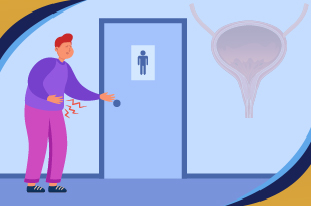We all have had our fair share of abandonment issues at some point in our lives, but rather than healing by managing it, we go deeper into our fear of abandonment. This is why we thought of taking it up as subject matter in this piece of writing, so we don’t only create awareness about it, but we will also talk about abandonment trauma along with it. Let’s begin:
What are Abandonment Issues?
Abandonment issues stem from a specific kind of anxiety or phobia revolving around the fear of loneliness. These issues can affect how you behave in your relationship with others, especially with your partners. For this reason, these issues can profoundly affect your relationships, especially if you don’t manage them properly.
Signs of abandonment issues can present themselves in adults in a range of ways, not just by negatively affecting their relationships, but doing way worse. Some of these are hard to identify without any expert input. People develop different attachment styles as they grow up (Simpson & Rholes, 2017). One of these attachment styles is the anxious attachment style, which is a hallmark of mental disorders such as borderline personality disorder, which is something similar to a mood disorder like bipolar disorder (Palihawadana et al., 2019), and dependent personality disorder (Zimmerman, 2023). People with anxious attachment style frequently display symptoms that are synonymous with abandonment issues:
Read More: Child Psychiatrist – A Guide For Parents & Guardians
- Excessive worry about how the people they have in their lives will leave them
- They are constantly looking for signs that someone might leave them
- They crave reassurances that people are not leaving them
- Frequently try to please others at the expense of their respect and self-esteem
- Invest a little too much into their relationships
- Don’t have any boundaries and are frequently destroying others’ boundaries
- Force themselves into toxic and unhealthy relationships due to the fear of being alone
Childhood Abandonment Issues
Abandonment issues frequently start with abandonment trauma originating in childhood. Abandonment trauma is a deep psychological wound that carries its pain in sufferers for generations once it is induced. Sons become fathers and daughters become mothers, or vice versa. This is extremely true if their issues stem from the deep psychological wound that happens when someone essential to a person’s emotional and physical well-being leaves or withdraws support. It can specifically be the case that if these wounds are still there and are not resolved promptly (via treatments like psychotherapy), chances are the affected children are going to carry their wounds into their adulthood and will probably (though not deliberately, most of the time) inflict them on their children.
Symptoms of Child Abandonment Issues Include:
Separation anxiety:
If a child is showing signs of anxiousness when their parents tend to leave them, then they are probably exhibiting fear of abandonment (Feriante, 2023).
Panic disorder:
If a child is exhibiting signs of a panic disorder or even simple panic when their parents are leaving, it might be an overreaction to their abandonment issues.
Fear of loneliness:
Fear of abandonment symptoms often stem from prolonged fear of loneliness. For example, children with abandonment issues can’t sleep without their parents or other parental figures.
Read More: Understanding The Different Types Of Trauma
The Link Between Attachment Styles and Severe Abandonment Issues
As we have mentioned before, the insecure/anxious attachment style is predominantly linked with severe abandonment issues. An insecure attachment style is not just a figment of our imagination or an abstract construct. It represents how our brains and nervous systems are wired to respond based on early life experiences.

Think about this: As someone who has experienced parental abandonment at a young age, parental support and nurturing are absent during critical developmental stages. This means that the child is going to develop serious fears of rejection and will have long-lasting difficulties forming relationships. This mirrors the anxious attachment style rather closely, as it is where people crave attention and have long-standing fears of rejection and abandonment. This is just one example of how the anxious attachment style is linked to abandonment issues.
Read More: The Hidden Mental Scars of Childhood Trauma in Adults
Exacerbation Linked to Abandonment Issues
There are a couple of risk factors linked to signs of abandonment issues:
-
Neglect:
People with abandonment issues and depression have often experienced neglect along with abandonment during childhood, are bound to suffer through it, and also inflict these issues on their children.
-
Stress:
Stress and abandonment issues are a bad concoction. Stress has been linked to overbearing abandonment issues, often leading to worsening fears and new anxieties.
-
Traumatic events:
Trauma coming from other kinds of abuse and other traumatic events is capable of exacerbating abandonment issues.
Read More: There’s Something About Disruptive Mood Dysregulation Disorder That You Should Know (DMDD)
How to Help Someone with Abandonment Issues?
Abandonment issues are highly treatable with the help of treatments like cognitive behavioral therapy, which is a short-term and goal-based version of psychotherapy. Psychiatric medication may not directly help it, but it can help treat the things that are capable of exacerbating it, such as depression. Lifestyle changes should also not be underestimated, as self-care techniques like medication can go a long way in treating your abandonment issues.
Wrapping Up!
Hopefully, your questions like “What does abandonment issues mean?” or “What causes abandonment issues?” have been answered. If you are seeking treatments such as the ones mentioned above and alternative ones like telepsychiatry, then you can get them at Orange Coast Psychiatry. We are not only adept at treating abandonment issues, but also other problems like schizophrenia or ADHD.
























